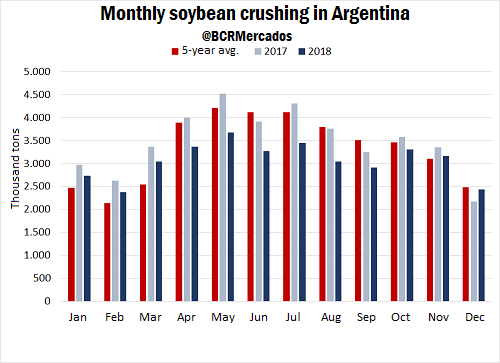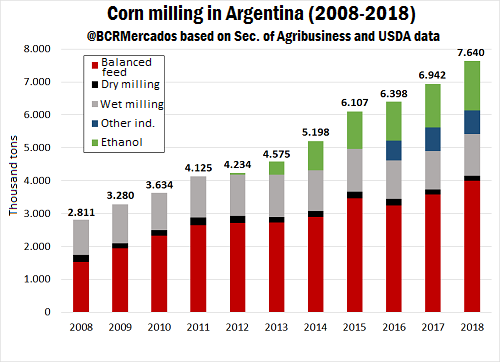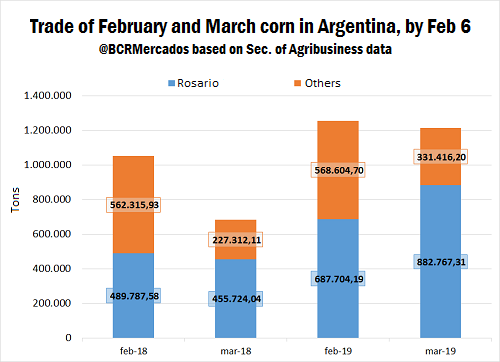Corn milling grew 10%, while soybean crush fell 12% in 2018
BLAS ROZADILLA - DESIRÉ SIGAUDO
Soybean industry crushed 36.7 million tons of beans in 2018, a year-on-year decrease of 12% and 8% below 5-year average. The year-on-year decline in the eight months between April and November 2018 are a result of several factors. First of all, a climatic phenomenon: the severe drought that cut 2017/18 soybean crop resulting on lower supply levels. Second, a change in the international scenario: the trade war between China (the world's largest soybean importer) and the United States (the largest global producer of the oilseed) that begun on June boosted Argentine soybeans exports to China. Third, a change in the internal rules of the game: in August, the reduction of export rights for the soybean complex was put on hold. In September, the modification of the export duties scheme started to discourage the export of industrialized soybean by-products, such as oil and flour. December was the only month of 2018 in which crushing exceeded 2017's volume.
Despite the year-on-year fall in crushing, soybean meal exports did not lose their relative importance in the Argentine trade balance. In 2018, soybean meal continued to be the star product of Argentine exports, reaching 15% of total exports value. Despite growing 1% (US$ 117 million) in dollars, the volume fell by 14%. Soybean oil shipments abroad also had a year-on-year fall of 15% -measured in tons- and 21% measured in dollars. As for corn milling, it reached 6.14 million tons in 2018 according to the Secretariat of Agribusiness data. Adding up ethanol industry's milling the total exceeds 7.6 Mt, showing a year-on-year increase of 10%. The performance was driven by a 12% increase in the balanced feed industry (almost 427,000 t more). The ethanol industry increased by 14%, adding more than 190,000 tons. As the graph shows, corn milling goes on a growing path reaching a new record in 2018.
So far, the volume of corn traded in 2019 for February and March delivery exceeds by far 2018's records. February business increased by 19% and March by 78% in the first 5 weeks of 2019. By February 6, February and March positions exceeded 2.4 million tons.


